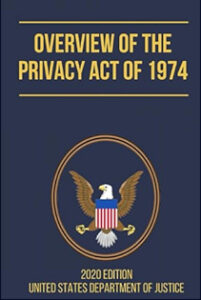In recent years, there has been a growing concern among individuals claiming disability benefits about the possibility of surveillance by the Social Security Administration (SSA). The fear of being closely monitored has led to speculation and misconceptions. In this blog post, we aim to shed light on the truth behind these claims and explore whether the SSA conducts surveillance on those who assert they are disabled.
The Disability Claims Process
Before delving into the surveillance aspect, it is crucial to understand the disability claims process. The SSA administers two main disability programs: Social Security Disability (SSD) and Supplemental Security Income (SSI). To qualify for benefits, individuals must meet strict criteria, proving that they are unable to engage in substantial gainful activity due to a severe medical impairment expected to last at least one year or result in death.
The Myth of Surveillance
Rumors and misinformation have fueled the belief that the SSA engages in extensive surveillance to verify the legitimacy of disability claims. Some claimants worry that their every move is being scrutinized, from social media activity to daily routines. However, it is essential to separate fact from fiction.
SSA Policy on Surveillance
The SSA does have mechanisms in place to ensure the integrity of the disability claims process. One such mechanism is the Continuing Disability Review (CDR), a periodic evaluation to determine if individuals receiving benefits still meet the eligibility criteria. While the SSA may conduct investigations in specific cases, routine surveillance of all disability claimants is not the norm.
Continuing Disability Review (CDR)
The CDR is a standard procedure that involves a review of medical and non-medical information to assess whether a claimant’s medical condition has improved, stabilized, or worsened. It is not a form of constant surveillance but rather a periodic assessment aimed at ensuring that benefits are directed to those who genuinely need them.
Privacy Protections

It is crucial to note that the SSA, like any government agency, is bound by strict privacy laws. The Privacy Act of 1974 protects individuals’ personal information collected by federal agencies, including the SSA. Any surveillance or information gathering is conducted within these legal frameworks to safeguard the rights and privacy of disability claimants.
While concerns about SSA surveillance on disability claimants may persist, it is important to separate reality from myth. The agency’s focus is on maintaining the integrity of the disability benefits system and ensuring that resources are directed to those who truly need assistance. Understanding the nuances of the disability claims process and the occasional use of tools like the Continuing Disability Review can help dispel unfounded fears and promote a clearer understanding of the SSA’s role in administering disability benefits.
How We Can Help

The disability claims process can be long, convoluted, and confusing. From completing questionnaires to supplying medical documentation, it is easy for the average individual to easily become frustrated, and many may give up. It is imperative that when you decide to file for SSD, you have experienced legal representation. The legal team at Parmele Law Firm has over 135 combined years of SSD experience and has helped over 55,000 individuals receive the disability benefits they deserve.
When you are ready to file your SSD claim, call Parmele Law Firm to schedule your no-cost consultation at 866-889-2570. You can also visit our website and chat with us online. Parmele Law Firm. Guiding you with integrity, competency, and experience.
FAQs on Social Security Administration Surveillance on Disability Claimants
Q: Does the Social Security Administration (SSA) conduct surveillance on individuals claiming disability benefits?
A: The SSA does have mechanisms in place to ensure the integrity of the disability claims process. While routine surveillance of all disability claimants is not the norm, the agency may conduct investigations in specific cases, primarily through the Continuing Disability Review (CDR) process.
Q: What is the Continuing Disability Review (CDR), and how does it relate to surveillance?
A: The CDR is a standard procedure used by the SSA to periodically assess whether a claimant’s medical condition has improved, stabilized, or worsened. It is not constant surveillance but a periodic evaluation to maintain the accuracy of benefit eligibility.
Q: Are disability claimants constantly monitored, including their social media activity and daily routines?
A: Contrary to rumors, routine surveillance of all disability claimants, including monitoring social media activity and daily routines, is not a standard practice. The SSA focuses on specific cases, utilizing tools like the CDR to ensure benefits go to those who genuinely need them.
Q: How does the SSA protect the privacy of disability claimants during any surveillance or information gathering?
A: The SSA is bound by strict privacy laws, including the Privacy Act of 1974. Any surveillance or information gathering is conducted within these legal frameworks to safeguard the rights and privacy of disability claimants.
Q: Is the disability claims process influenced by surveillance, leading to unfounded denials?
A: The disability claims process is primarily influenced by medical evidence and adherence to eligibility criteria. While the SSA uses tools like the CDR, routine surveillance is not intended to result in unfounded denials but to ensure ongoing eligibility accuracy.
Q: How long does the disability claims process take, and can surveillance expedite it?
A: The disability claims process duration varies, and surveillance is not conducted to expedite it. Surveillance, through tools like the CDR, aims to ensure ongoing eligibility but does not inherently speed up the claims process.
Q: Can individuals refuse to participate in the Continuing Disability Review (CDR) process?
A: The CDR process is a mandatory part of the SSA’s mechanisms to assess ongoing eligibility. Refusal to participate may impact the continuation of disability benefits.

